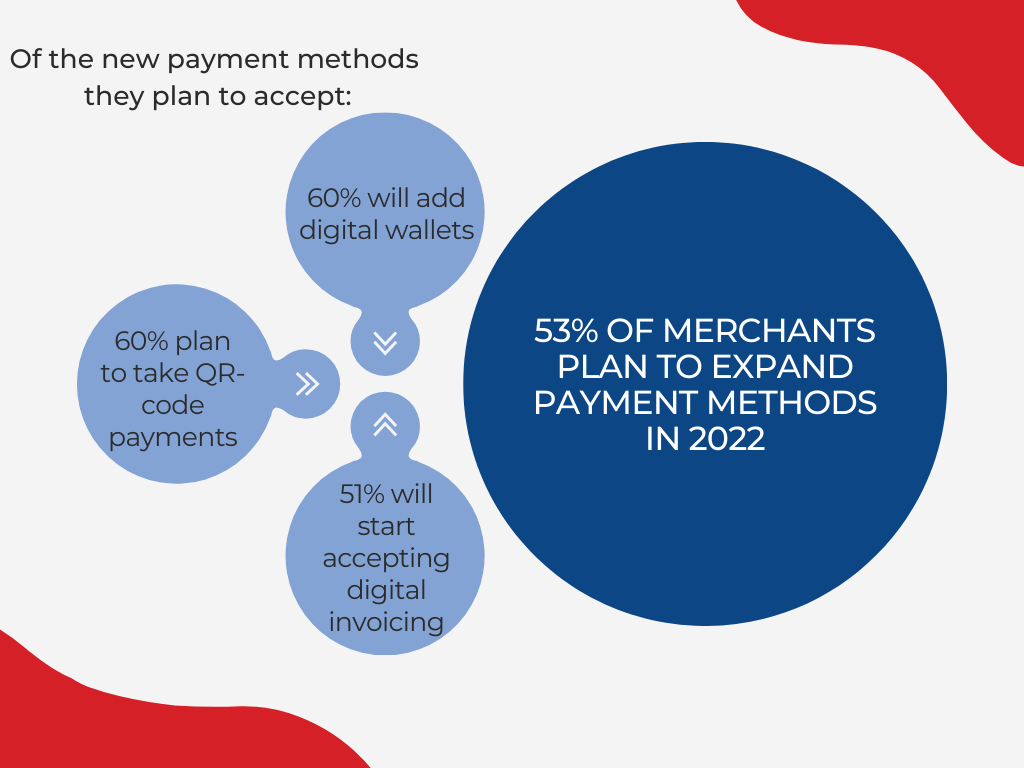Digitalisation Of Payments
The COVID-19 pandemic has significantly accelerated the shift to different digital payment methods. After two years of working from home and shopping online, consumers have now accepted the fact that digital transformation is increasing and is part of every business strategy and vision. Digitalisation also has a positive impact on the efficiency of business operations across many industries.
The payment industry is one of the most affected as there is a massive change in how consumers pay. When it comes to digital payment methods, there are a few that need attention: digital wallets, QR-code payments, Pay by link and digital invoicing, Open banking, RTP systems, etc.

Digital wallets store people’s various payment types, such as debit cards, credit cards, and more. According to Global Payments’ 2022 ‘Trends Report’, an estimated 4.4 billion global consumers will shop with a digital wallet by 2023. Furthermore, 1.6 billion global consumers will pay by digital wallets at the point of sale (POS) in 2023, accounting for 30% of POS payments.
The second big trend concerns QR-code payments, which are an innovative way to drive additional sales and improve the customer experience. By 2025, QR-code payment users are expected to exceed 2.2 billion.
Pay by link and digital invoicing allow businesses to create instant custom links to initiate online payments. Business-to-business (B2B) payments typically use digital invoicing that can be viewed and paid digitally. This payment trend is projected to grow significantly in the next five years.
Open banking enables customers to pay straight from their bank account instead of using a card. As card details are not shared, this payment method involves fewer intermediaries and is generally safe.
Another burning topic is real-time payment (RTP) systems. Key factors for driving RTP adoption are the need to improve efficiency, respond to technological innovation and reduce systematic risk.
To conclude, global B2B non-cash transactions will increase to nearly 200 billion transactions in the next three years. Adopting new digital payment methods will help any business improve customer experience and increase profitability.
About the Author
Alina Todorova is a Business Analyst at Caxton.



